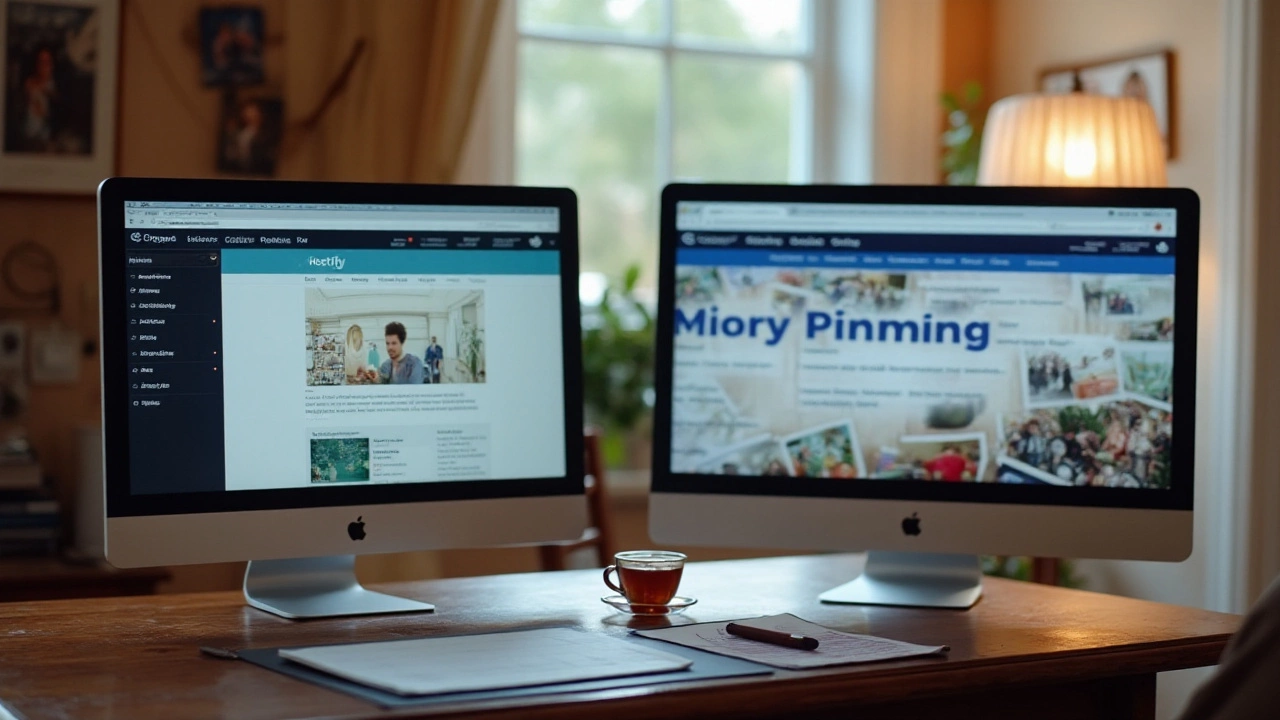If you're establishing an online presence, one of the crossroads you'll inevitably encounter is deciding whether to pay for website hosting services or to go with a free alternative. Each choice comes with its own set of advantages and drawbacks, making this decision pivotal for the trajectory of your online endeavors.
For many, the idea of free hosting can be tempting—after all, it's cost-effective. Yet, this option often comes with limitations that could impede your website's growth. Issues such as limited bandwidth, frequent downtime, and security vulnerabilities are common hurdles associated with unpaid services.
On the flip side, paid website hosting opens up a realm of possibilities, offering robust features, technical support, and scalability, which are crucial for businesses and individuals who prioritize stability and security. This investment often means your site will run faster, handle more visitors efficiently, and stay secure against digital threats.
As you deliberate over this choice, it's important to assess your specific needs and long-term goals. Understanding the differences between free and paid hosting and what each offers can help you make an educated decision. Let's delve into the factors that should influence your choice and how you can ensure your website thrives in an ever-competitive digital landscape.
- Understanding Website Hosting
- Benefits of Professional Hosting
- Comparing Free and Paid Options
- Identifying Your Needs
Understanding Website Hosting
In the digital era, website hosting is the bedrock of your online presence. Whether you're a budding blogger, a small business owner, or a giant corporation, your website lives and breathes on the internet thanks to hosting services. So, what exactly is website hosting? At its core, hosting is a service that allows your website to be accessible on the World Wide Web. A provider allocates space on a server for your site, storing files and data necessary for your site to run efficiently.
Think of hosting as renting space on the internet. Just as you’d need land to build a physical store, you require server space to establish your online storefront. The data center, a facility housing numerous servers, functions like a digital city where your website 'lives.' Hosting companies offer this server space, managing upkeep, updates, and the all-important task of keeping your site visible and operational twenty-four-seven. Their servers, located in data centers across the globe, ensure that when someone clicks your URL, your site appears promptly and correctly. It’s vital to recognize that not all hosting is created equal; different kinds serve different purposes, ranging from basic shared hosting to sophisticated dedicated servers.
Moreover, the choice of a hosting type can depend heavily on factors like the level of technical expertise you have, the expected traffic your site will handle, and your financial planning. More advanced options like dedicated hosting offer enhanced resources but are typically at a premium cost. Shared hosting, on the other hand, can be budget-friendly as it involves your website sharing resources with others, which could affect performance during peak traffic times. Many opt for a middle ground with VPS—that's Virtual Private Server—hosting, which provides a balance of cost-efficiency and resource allocation tailored to modest yet growing needs.
Understanding these concepts is crucial for anyone serious about their web strategy. According to a 2023 report by Statista, there are over 900 million websites worldwide, offering a remarkable testament to the significance of online presence. Without proper hosting, even the most well-designed website is just as good as invisible. A renowned web analyst once stated,
"Selecting the right web hosting could make or break your site’s success on the internet."How a site ranks in search results, something that directly impacts its visibility and user engagement, can even be influenced by hosting due to speed and uptime.
Perhaps most importantly, tackling website hosting can also be seen as a sign of professionalism and brand trust. Remember, your website is often the first point of interaction with potential customers. An unreliable site that frequently crashes or loads slowly can reflect poorly on a brand or individual. For users browsing the internet, speed and accessibility have become non-negotiable standards. In such an environment, opting for reliable, perhaps even professional hosting, ensures your site meets these expectations, providing visitors with an experience that reflects positively on your brand.

Benefits of Professional Hosting
When considering website hosting, one of the greatest advantages of choosing a professional service is the enhanced reliability and performance it provides. Unlike free services, professional hosts invest heavily in high-performance hardware and infrastructure, ensuring minimal downtime and fast load speeds for your website. This performance boost is crucial, as studies have shown that a delay of mere seconds in page loading can lead to a decrease in user engagement and conversions. For many businesses, the cost of a professional hosting service is more than justified by the potential revenue increases from having a more reliable and efficient online presence.
Security is another critical factor where professional hosting services excel. Cyber threats are an unfortunate reality in the digital world, and the risk is especially high for websites that handle sensitive customer data. Professional hosts often include robust security measures as part of their packages, such as SSL certificates, regular backups, DDoS protection, and malware scanning. These features help protect against data breaches and other cyber attacks that could not only harm a business's finances but also its reputation. A professional host’s stringent security protocols can prevent these nightmares, giving business owners peace of mind. According to a study by SiteLock, websites that don't prioritize security are at risk of being hacked, especially small businesses that might not recover from such an attack.
Moreover, the unparalleled technical support offered by paid hosting services can be a lifesaver. With access to skilled support staff available around the clock, website owners can resolve issues promptly, minimizing any potential disruption. This is particularly beneficial for those who may not have a dedicated IT team.
"Professional hosting providers understand that their clients rely on them for stable operations and so they ensure customer support is a high priority," states an expert from HostingAdvice.Their support often includes assisting with problem-solving, regular maintenance, and helping optimize website performance, which reduces the time and worry spent on technical hassles.
Another outstanding benefit is scalability. As your business or project online grows, your website requirements will evolve. Professional hosting makes it easy to upscale or downscale your resources according to your needs without having the stress of migrating to a new service, which can be expensive and time-consuming. Hosting providers often offer varying plans to accommodate different sizes of bandwidth, storage, and traffic, allowing seamless upgrades when necessary. This flexibility ensures you can focus on growing your business, knowing that your web services can handle increased demand when needed.
Finally, customizability is an attractive feature that professional hosts provide. Many services allow you to choose from a range of operating systems, control panels, and server specifications, giving you the freedom to tailor your environment to suit your specific needs. This level of customization is rarely seen with free services and can be vital for businesses with specialized software requirements. These tailored solutions are complemented by additional features such as analytics and reporting tools, which help optimize operations by providing insights into visitor behavior and site performance. Investing in professional hosting offers a level of flexibility that marries well with the dynamic nature of running an online business.

Comparing Free and Paid Options
Deciding between free and paid website hosting is akin to choosing between a basic bike ride and a luxury car drive—each has its purpose and place. When you lean towards free hosting solutions, the allure is clear—saving money. But hold on, the hidden costs aren't just financial. These platforms tend to be laden with ads that not only tarnish your site's image but also distract your visitors, diverting them away from your primary content. Beyond the visual clutter, there's the factor of limited bandwidth, which means when your traffic spikes, don't be surprised if your website slows to a crawl or, worse yet, crashes entirely during peak times.
Now, shifting gears to professional hosting options instantly adds layers of benefits that a discerning web master can't ignore. From offering higher uptime rates to providing comprehensive security features, paid hosting is like hiring a round-the-clock guard for your digital front door. This peace of mind is invaluable, especially when sensitive data is at stake. Plus, the boost in customer support—experienced teams available 24/7—can mean the difference between a quick fix in times of trouble and being stuck in a quagmire of technical difficulties. In fact, a study by Hosting Tribunal shows paid services generally offer uptime rates of up to 99.99%, a clear game-changer for serious businesses.
Consider the ability to scale. Free services often cap your resource usage, which stifles growth and compels a switch just when your site starts gaining traction. Paid hosting, on the other hand, is minded for growth, allowing you to expand as your audience demands, handling more extensive databases, and advanced custom features without hiccups. Here's where the investment truly pays dividends—you avoid the headaches and lost potential that come with data lags and breaches. As Mark Gavalda, CEO of Kinsta, once emphasized, "A good host grows with you, not against you."
Now, if we compile various service features, you'll often find that, with paid hosting, users have access to a vast repository of tools designed to enhance SEO metrics, integrate e-commerce kits seamlessly, and utilize cutting-edge analytics that can all direct your website toward new horizons. This facet transforms a simple website into a competitive digital presence. Free hosting seldom provides these additional resources, creating a digital desert while your competitors bask in an oasis of dynamic tools. In crunching the numbers, a professional host clearly delivers an enhanced return on investment, empowering your site to operate free of external restrictions.
So, while free hosting might be a tempting gateway, especially for those just cutting their teeth, seasoned web owners know the merits of relying on paid hosts. It's not merely for the direct results but the potential to protect your brand's reputation in an age where downtime means lost opportunity and speed matters. Ultimately, the shift to paid hosting is less of a burden and more an investment, fortifying your larger digital strategy with steadfast security, unparalleled reliability, and the power to drive forward rather than being held back by invisible chains of the free hosting realm.

Identifying Your Needs
Embarking on your journey to secure a reliable web presence involves understanding precisely what your website demands from a website hosting service. Clear identification of your website’s requirements is essential before diving into the realm of professional hosting services. The main factors to consider are the purpose of your website, anticipated traffic, technical proficiency, budget, and future growth plans. The purpose ties directly to your mission—whether you’re running a personal blog, an online store, or a corporate site. Each type demands different functionalities, such as e-commerce capabilities, multimedia content support, or interactive features.
Traffic estimation is another crucial element. A surge in online visitors can easily overwhelm a server, especially with free hosting options, leading to slower load times and potentially lost visitors. Professional web services often offer scalable solutions to manage high traffic efficiently, ensuring your site remains accessible and fast, optimizing the user experience. This is particularly relevant because a delay of even seconds can impact engagement rates and SEO rankings, pushing potential clients to competitors.
Technical Proficiency
Your technical skills also shape your hosting choice. Many paid hosting services offer user-friendly dashboards and excellent technical support, assisting those unfamiliar with web hosting intricacies. Free hosting might have the opposite characteristics, lacking comprehensive support. Hence, for someone who places high importance on DIY support, professional hosting can feel like a safety net, providing backup when needed most.
Budget constraints naturally guide decisions but think of paid hosting as an investment rather than just an expense. Often, the cost reflects the value you derive. Businesses prioritizing a robust online presence will find this investment worthwhile as it ensures a seamless online operation. According to WebFX, a 1-second delay in page response can result in a 7% reduction in conversions.
Planning for Growth
Planning for the future is pivotal. If your aim is to expand your website over time, choosing a hosting service with scalable solutions is vital. You might not need all the bells and whistles at the start, but as your website grows, having the option to upgrade without hassle is beneficial. It’s wise to read service reviews and understand their upgrade mechanisms.
"You should look at a few key variables before choosing a web host – uptime, speed, support, and scalability," says Terry Mahoney, a renowned tech strategist.
| Feature | Free Hosting | Paid Hosting |
|---|---|---|
| Bandwidth | Limited | Flexible |
| Support | Minimal | 24/7 Access |
| Security | Basic | Advanced |
In the intricate fabric of website hosting needs, balancing current demands with future aspirations sets the stage for making an informed decision. By carefully identifying these elements, you can effectively align your choice of hosting provider with your overall strategy, ensuring a long-term, successful online presence.





